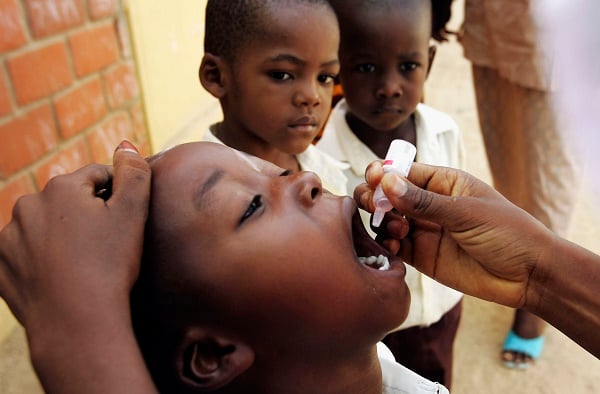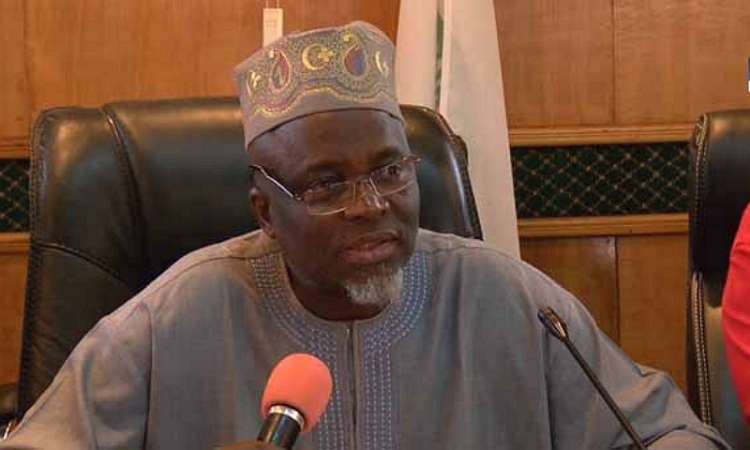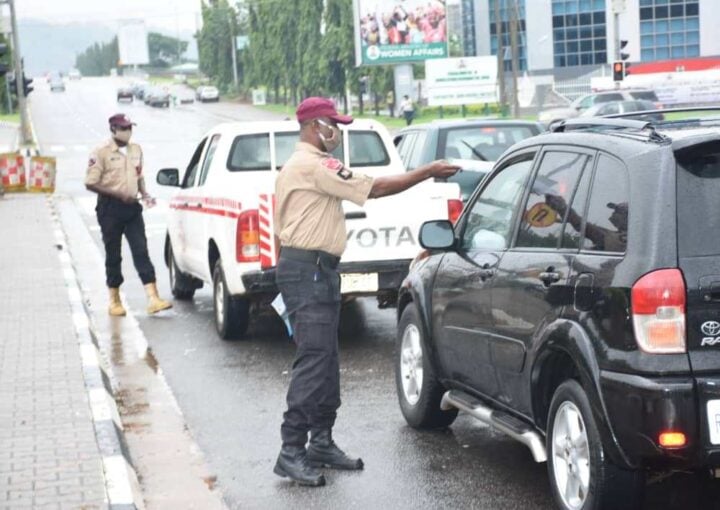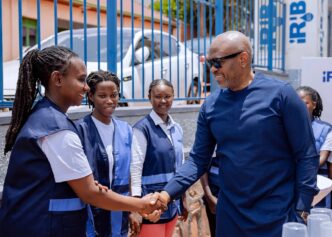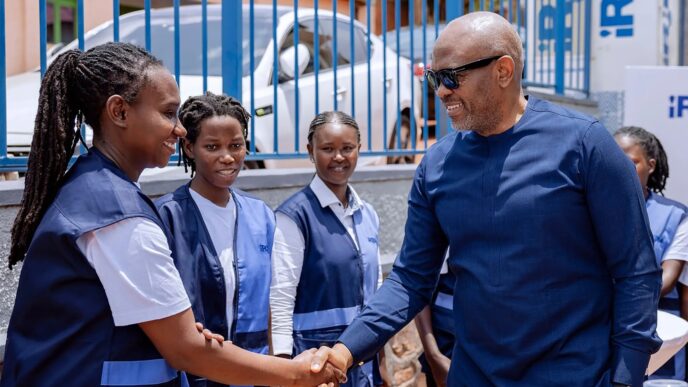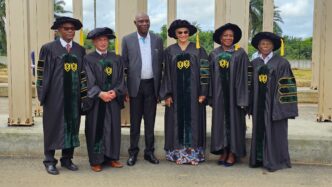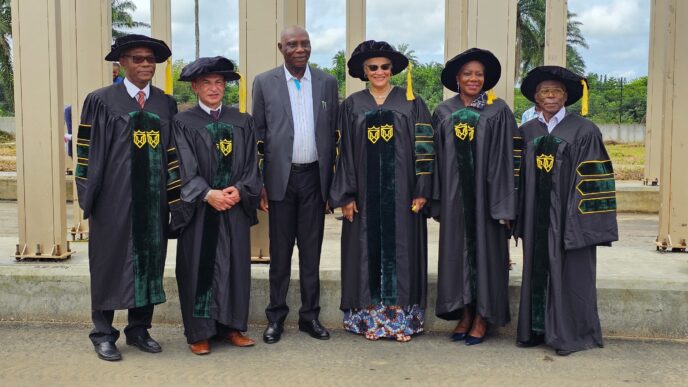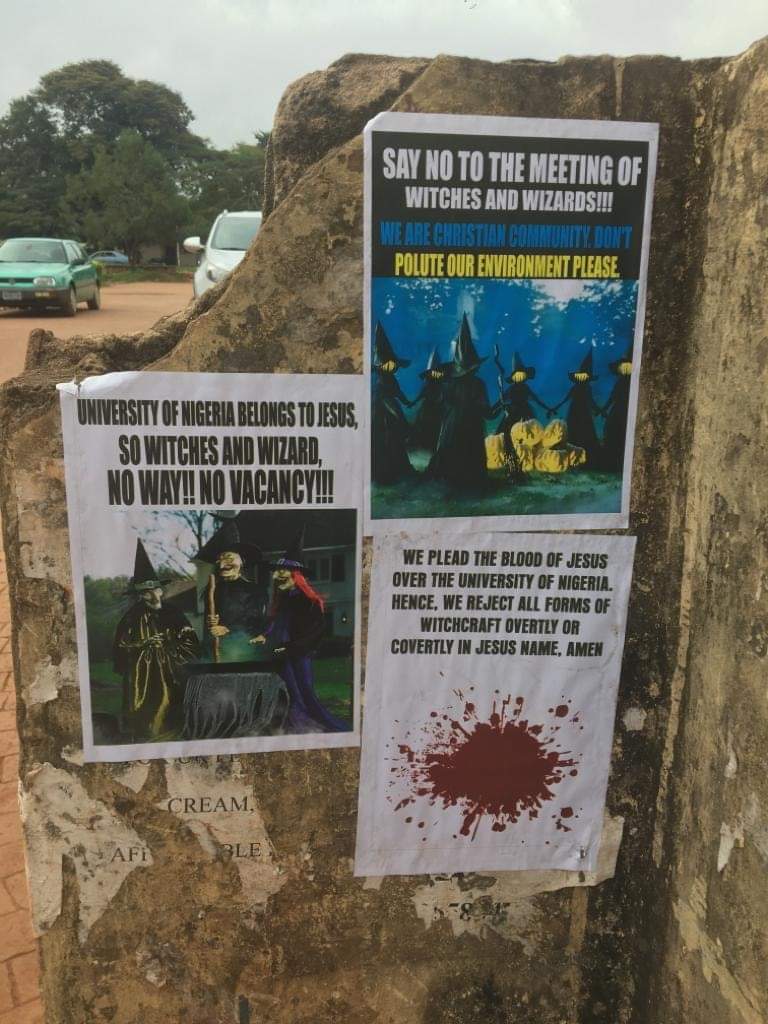As the world prepares to mark the 2024 Polio Day scheduled for October 24, UNICEF Nigeria has also finalised plans to stage Immunisation Song Launch and Immersive Experience in Lagos.
It is an event targeted at the media as a key development partner of UNICEF and is expected to draw the cream of people who comprise representatives of government, donors, partners, UNICEF West and Central Africa Ambassadors, celebrities and young advocates, even as it would represent a significant milestone in UNICEF’s ongoing efforts to reduce the number of Nigerian children who are not immunised.
The programme indicates that participants at the song launch would witness the first-time screening of a music video featuring UNICEF Ambassadors and music celebrities from Nigeria and the West Africa region, while they would also experience an emotional and immersive installation showing the history and importance of immunisation. Fireside chats with Paralympic athletes who have survived polio, as well as conversations with the music stars who came together to lend their voice to the critical advocacy for complete immunisation would also feature at the Lagos event.
For several years now, UNICEF has embarked on a series of efforts to tighten loose ends with regard to child immunisation in Nigeria, bringing about fresh hopes for the future each time.
Advertisement
Recently at Tsamiya Babba in Gezawa Local Government of Kano State, the Basic Health Centre in the area hosted hundreds of parents who poured into the facility to get their children of under 0 to 5 years vaccinated.
At a similar facility in Gwagwarwa area of Kano metropolis, success was also recorded, although unlike at Tsamiya Babba where only children of between 0 and 5 years old were vaccinated, the Gwagwarwa health centre also hosted many children of between 9 and 14 years who had come for the Human Papillomavirus Vaccine (HPV).
Chief of Health, UNICEF Nigeria, Dr. Eduardo Celades, who reviewed the Kano immunisation success story, had said: “The fact that over 10 billion lives have been saved across the world since the first vaccine was produced over 50 years ago simply means there is no alternative to vaccines.”
Advertisement
Celades however cautioned that although the 70 per cent success achieved by child vaccination in northern Nigeria so far deserved commendation, the success should rather be treated as a process than an event as more challenges still laid ahead in the fight against killer diseases among children and adolescents.
“The record of non-compliance to vaccination, which stands at 111,000, in addition to 31, 000 kids that have remained unvaccinated, brings about deep worries that by 2029, a greater number of children would not have gotten vaccinated,” he said.
The UNICEF chief of health, who reiterated the efficacy of vaccines, also said: “I was in the thick of action when diphtheria broke out in Kano in 2023, affecting more than 10, 000 children, and I saw firsthand how a collective action saved an unpleasant situation from getting worse, especially at remote areas of the state where accessibility was problematic. It is for this that I am preaching a collective action once more to get more and more Nigerian children vaccinated through the sustained effort of religious and community leaders, celebrities and the media.”
Stakeholders in the health sector are unanimous that as much as every single stage of vaccination is followed to ensure a wholesome result, all would still come to nothing without sustained education and awareness campaigns.
Advertisement
It is without doubt for the foregoing that this year’s World Polio Day has been scheduled to be staged in Lagos; a state that has for many years demonstrated excellence in taking the lead in many facets of human endeavours in Nigeria. The ripple effects can only manifest in multiple ways at the end of the one-day event.
UNICEF has made a partnership with the media a cardinal principle in its programmes over the years. In November 2023, the world body organised a two-day media dialogue in Port Harcourt, Rivers State that focused on issues around Human Papillomavirus Vaccine in Nigeria and prospects for change, whose campaign had been launched in many secondary schools across the country.
UNICEF officials at the dialogue revealed that a data released by the National Primary Health Care Development Agency (NPHCDA) as at November 16 2023, with regard to compliance on HPV across the country, showed that the exercise had taken a slow start in some states while other states had responded positively.
They told the media representatives that HPV is responsible for about 95 percent of cervical cancer, saying although 90 percent of infections clear within two years, some infections can continue for as long as 20 years, leading to full-blown cervical cancer.
Advertisement
In February 2023, UNICEF also organised a two-day media dialogue in Maiduguri, Borno State that aimed to update the media personalities with regard to child malnutrition in Nigeria and its implications for the foreseeable future. The officials revealed to the media that about 440,000 children under five years old in the Maiduguri area alone were suffering from acute malnutrition while the scourge had also spread to neighbouring Yobe and Adamawa states where effects of the insurgency were being felt, with the influx of internally displaced persons into the already filled IDP camps worsening the child malnutrition challenge as government funding is overstretched.
They further said that the future of Nigeria could only be imagined with almost half a million children facing stunted growth arising from acute malnutrition.
Advertisement
The need to educate the mothers on breastfeeding babies was also stressed in the dialogue while not denying that religion, culture and insurgency also play a role in exacerbating malnutrition.
Participants were also informed that although the United Nations had declared 2016 to 2026 as the ‘Decade of Nutrition’, the Nigerian government has several priorities, especially in the north-east, chief of which is the war against insurgency, which still requires about $100 million to address child malnutrition that is ravaging the region while UNICEF itself requires over $1billion to tackle the malaise that has left the region with 42.8 percent affliction of the 2.5 million affected children in Nigeria, only trailing the north-west that has the highest rate in the country with 50.4 percent.
Advertisement
Despite the successes recorded by UNICEF Nigeria over the last several decades, however, inadequate funding has posed a great challenge to its activities. Many times, various state governments and the federal government have pledged donations. But it is either the pledge went undelivered or the funds arrived too late, even though still inadequate – clearly a result of lack of a clear cut legislation on the rights of the Nigerian child.
But there appeared a glimmer of hope for a paradigm change on the government funding recently when a high-powered UNICEF team visited Jigawa State to press for state legislation on child rights.
Advertisement
Governor Umar Namadi, who received the UNICEF team in the audience, announced his readiness to accent an Executive Bill passed into Law by the Jigawa State House of Assembly amending the Law which establishes the Jigawa State Contributory Health Insurance Management Agency (JCHMA).
Remarkably, one of the major amendments in the Law is the establishment of a “Health Equity Fund” to allow for the pooling of financial resources for the purpose of gradual expansion of healthcare coverage for vulnerable and indigent populations and to cater for other health emergencies in the state, which also provides for a minimum annual contribution of N1.0 billion into the Fund by the state government, in addition to contributions envisaged from other sources including the local governments, the Basic Healthcare Provision Fund, the National Primary Healthcare Development Agency, as well as contributions, grants and donations from International Development Partners, private sector organisations and local/international NGOs.
The success derivable from this Jigawa example is expected to motivate the 35 other states and even the federal government to do more for the Nigerian child with a view to securing a profitable future for the country.
Views expressed by contributors are strictly personal and not of TheCable.
Add a comment

